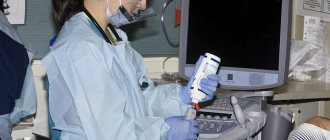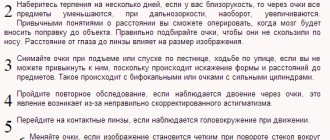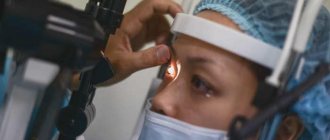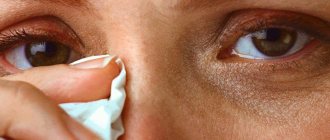Ectopic pregnancy
Among gynecological diseases, the most urgent need for seeking medical help is a terminated ectopic pregnancy. The fertilized egg is located outside the uterine cavity (95% in the fallopian tube, less often in the ovary), and as it grows, it leads to stretching of the fallopian tube, which is accompanied by cramping pain. When the fallopian tube ruptures, the pain increases sharply and becomes diffuse. Internal bleeding is a dangerous complication of a terminated ectopic pregnancy. With significant blood loss, a woman experiences dizziness and then loss of consciousness. There may be slight bleeding from the vagina. Internal bleeding very rarely stops on its own and in this situation urgent surgical intervention is necessary.
There is nothing to be ashamed of: which doctor should you see if you have acute cystitis?
A doctor who deals with diseases of the kidneys and urinary system is a urologist.
This does not change the fact that if symptoms of acute cystitis appear - the urge to urinate, pain when urinating, etc., a woman can consult a gynecologist. Based on your medical history and symptoms, he will assess the problem and can begin treatment.
Most often, cystitis is caused by bacteria. This means that you will need to start treatment with antibiotics, which can only be done with a prescription.
Important: if symptoms of cystitis appear in a pregnant woman or a man over 50 years of age, consult a doctor immediately and begin treatment. Elderly people and children are also at risk of complications after acute cystitis.
Apoplexy or ovarian rupture
Another cause of acute pain in the lower abdomen is apoplexy or ovarian rupture. Moderate pain can occur at the time of ovulation in the middle of the menstrual cycle, when the egg is released from the follicle. As a rule, this pain goes away on its own. Sometimes rupture of a follicle in the middle of a cycle can lead to massive intraperitoneal bleeding. More often, rupture of a corpus luteum cyst is observed (usually at the end of the menstrual cycle). Pain and blood loss may vary. In mild cases, bleeding is minor and stops on its own. In case of large blood loss, surgical treatment is performed. With timely intervention, only suturing of the rupture site is performed, and the ovary, as a rule, can be saved.
Torsion of the pedicle of a tumor or ovarian cyst
Torsion of the pedicle of a tumor or ovarian cyst is also manifested by acute pain in the lower abdomen. The pain is caused by impaired blood supply to the ovary or uterine appendages. This condition can be triggered by physical activity, heavy lifting, or sexual intercourse. Severe and constant pain is accompanied by a feeling of fear, nausea and vomiting.
Treatment for this condition is surgical. If the disruption of the blood supply does not lead to necrosis, the torsion is eliminated and only the cyst or tumor is removed. In cases where medical care is delayed and tissue necrosis occurs, it is necessary to remove the affected uterine appendages (ovary and fallopian tube).
Acute inflammation of the uterus (metroendometritis) or its appendages (salpingoophoritis)
In case of acute inflammation of the uterus (metroendometritis) or its appendages (salpingoophoritis), the woman is also bothered by acute pain in the lower abdomen. Pain often occurs during or after menstruation or is associated with a recent abortion or other uterine surgery. There may be increased vaginal discharge, often with an unpleasant odor.
Acute inflammation of the uterus and appendages can be treated in a antenatal clinic. However, the doctor should be wary of the formation of a tubo-ovarian abscess (purulent formation of the appendages) and its rupture. Abscess rupture is a condition in which immediate surgery is necessary, since delay is fraught with the development of diffuse peritonitis, i.e. a complication that threatens the life of the patient, to save whom it is sometimes necessary to use the entire arsenal of means and capabilities of the hospital.
How to diagnose cystitis in women and men caused by a bladder tumor
Inflammation can be caused not only by infectious agents or chemicals, but also by malignant tumors that arise in the mucous membrane and wall of the bladder. And not only the treatment of a given episode of cystitis, but the patient’s life depends on their early detection.
Usually, with such cystitis, complaints associated with pain during urination and increased urge are not very pronounced, but the patient notices an admixture of blood, sometimes coming out in clots when urine is separated. Of course, the symptoms greatly depend on the location of the tumor, the size and stage of the oncological process.
Cystitis caused by bladder cancer can be determined by the following indicators:
- Presence of atypical cells in urine cytological analysis.
- High amounts of bladder cancer antigen in the urine.
- Signs of a neoplasm in the wall of the organ, which are detected on ultrasound, CT scan of the bladder.
These studies help the urologist to recognize the tumor process in time and refer the patient for surgical treatment.
All this once again confirms the need for detailed diagnosis of cystitis, especially recurrent cystitis, before prescribing treatment. Although we often encounter patients self-medicating, uncontrolled use of antibiotics for symptoms of bladder inflammation without establishing an accurate diagnosis, which can lead to adverse consequences.
Uterine fibroids
Complicated uterine fibroids can also cause severe pain in the lower abdomen. Most often, with this disease, patients complain of moderate pain due to compression of neighboring organs or tension of the uterine ligaments, as well as long and heavy menstruation. However, if there is torsion or disruption of the blood supply to the myomatous node, acute pain may occur. In such cases, medical assistance must be provided immediately; in case of fibroid necrosis, immediate surgery must be performed and the tumor removed.
Acute appendicitis
Acute appendicitis is the most common disease of the gastrointestinal tract, manifested by sharp pain in the lower abdomen. The first signs of acute appendicitis are often pain in the upper abdomen and nausea. Later, the pain shifts to the right iliac region (lower abdomen on the right side). This disease should be distinguished from gynecological diseases. It is better to properly diagnose and exclude acute appendicitis than to observe it for a long time. If surgical care is not provided in a timely manner, perforation of the appendix (formation of a hole in the appendix) and peritonitis occurs.
If a woman is pregnant, then if any painful sensations appear, she needs special attention. Pain or a feeling of heaviness in the lower abdomen, sacrum, lower back, and its cramping nature are often symptoms of a threatened miscarriage. Timely contact with an obstetrician-gynecologist is the first condition for successful treatment. Hospitalization, rest, limited and properly selected (taking into account the effect on the fetus) therapy, and additional examination are usually necessary for any threat of miscarriage.
Rupture and the occurrence of acute pain can complicate the course of diseases such as cysts or cystomas (tumors) of the ovaries, ovarian endometriosis.
Key information: causes, risk groups
The content of the article
Acute cystitis is classified as a urinary tract infection (abbreviated as UTI). This disease is designated N30.0 (according to the International Statistical Classification of Diseases and Related Health Problems).
Acute cystitis
Most often occurs in women, especially sexually active ones (may appear after sexual intercourse).
It is estimated that up to 80% of cases of cystitis in premenopausal women are associated with sexual activity. This is due to the structure of the female genitourinary system (proximity to the mouth of the urethra and anus - bacteria from the intestines are responsible for cystitis). Hence the common name for this infection – “honeymoon disease”.
It is worth adding that (it is estimated) from 20 to 50% of women will experience cystitis at least once in their lives. Interestingly, acute cystitis also affects men, especially after andropause (that is, after 50 years). If symptoms occur, mature men should consult a doctor as soon as possible.
The most common causes of acute cystitis:
- coli bacteria (Escherichia coli) found around the anus;
- other intestinal bacteria, for example, staphylococcus, enterococcus;
- less often - viral and fungal infections.
Other microorganisms that can lead to this disease include the following:
- gonorrhea;
- chlamydia;
- mycoplasma.
They can also lead to inflammation of the urethra. In other words, sexually transmitted germs can also cause acute cystitis.
Treatment of cystitis - without complications and with correctly selected drugs - lasts up to 10 (usually from 3 to 5) days. In case of recurrence of infection, the treatment time can be increased to 14 days.
Spontaneous miscarriage
Characteristic signs of spontaneous abortion are cramping pain above the pubis and bleeding from the vagina. If you seek qualified medical help in a timely manner, pregnancy can often be saved. However, if the miscarriage progresses (profuse bleeding), or has already occurred, then the bleeding can be stopped only by carefully curettage of the uterine cavity. The purpose of such an operation is to remove non-viable parts of the fertilized egg from the uterus and cause its contractions. If these conditions are not met, then the remains of the fertilized egg may become infected, inflammation will occur in the uterus, and bleeding will resume.
Diseases of the uterine mucosa, uterine fibroids.
Sometimes heavy uterine bleeding bothers a patient over 40 years old. Common causes of uterine bleeding are diseases of the uterine mucosa and uterine fibroids. As a woman ages, the risk of developing malignant diseases of the uterus increases. If there is severe uterine bleeding that develops suddenly, or a large loss of blood, the woman urgently needs to call an ambulance team.
Of course, the listed diseases do not exhaust the list of situations when seeking emergency medical care is mandatory. There are many other medical and surgical diseases, and in addition, the conditions that we described above sometimes present atypically.
If you have what doctors call an “acute” condition that requires immediate medical attention, help the emergency medical dispatcher who answered the call decide on a team. If possible, clearly formulate your serious complaints: acute abdominal pain, severe bleeding from the vagina, confusion, high body temperature, etc.
If you are hesitating whether to call an ambulance or not, use common sense, but also listen to the voice of your intuition. Timely emergency medical care kept women healthy, gave them the opportunity to experience the happiness of motherhood, and saved the lives of many of them.
Is it true?
+ To avoid cystitis, you need to wear warm underwear. Hypothermia can actually cause cystitis. When hypothermia occurs, local immunity suffers, and bacteria that live in the anus and vagina and for the time being do not cause any harm begin to actively multiply. But where exactly the hypothermia occurred is not so important. Therefore, cystitis can appear even if you are wearing warm underwear, but you go outside without a hat.
— For cystitis, douching with potassium permanganate or furatsilin is needed. But this is definitely not necessary! When douching, the antiseptic solution does not penetrate the bladder, but can cause a burn to the mucous membrane of the vagina and urethra.
— Thongs and tight underwear lead to cystitis. This connection has not been proven, so choose the underwear that you like.
— To prevent cystitis, you need to drink as much cranberry juice as possible. Morse has no effect on the occurrence of cystitis, so drinking or not drinking is a matter of personal preference. However, if cystitis has already appeared, it is really necessary to maintain a drinking regime and drink at least 1.5 liters of clean water per day - the bladder must be emptied on time.
— If you have cystitis, you need to sit in a bath with warm water. It relieves spasms and alleviates the condition, but does not cure the disease.
+ If you have cystitis, you should not eat spicy food or drink alcohol. Both irritate the mucous membrane of the bladder, so it is really better to avoid these products during illness.











